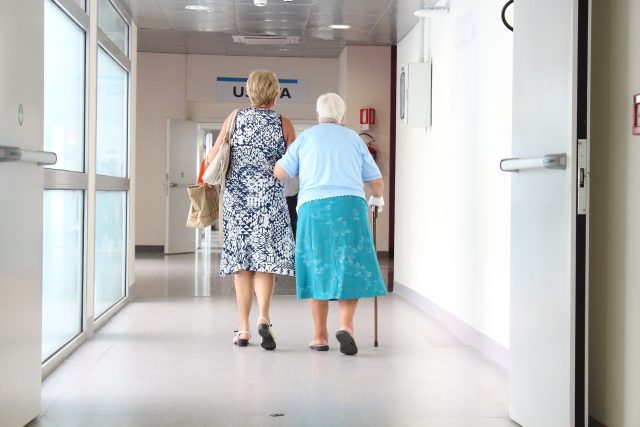
Italy is experiencing an unprecedented demographic transformation, with constantly increasing life expectancy and a rapidly growing elderly population.
According to forecasts, in the next three years the country will see the number of people aged over 90 reach one million. This phenomenon turns the spotlight on the crucial importance of care for the frail elderly, a challenge that the Italian healthcare system must face with urgency and determination.
Elderly care: an evolving picture
Italia Longeva, an organization dedicated to promoting the longevity and well-being of older adults, recently presented a survey that outlines a future in which elder care will become even more critical. Currently, it is estimated that in twenty years the number of elderly people in Italy will reach 19 million, with a third of these being over 65 alone and at risk of isolation. This data highlights the need to develop effective strategies to support this vulnerable segment of the population.
The need for home care is enormous, and despite the growing number of over-65s benefiting from home care, the available resources still do not seem sufficient. From 2014 to 2023, the number of seniors receiving home care increased from 252,000 (1.95% of the total) to nearly 550,000 (3.89%). This increase is positive, but there is still much to be done to adequately respond to the needs of the elderly population.
The challenges of dementia and chronic diseases
One of the main problems affecting the elderly is dementia, one of the main causes of loss of autonomy. Currently, 64% of people with dementia are not cared for by social and healthcare structures, which represents a significant burden for millions of Italian families. Home care can alleviate some of this burden but requires adequate structural and financial support to be effective. The aging population is associated with an increase in chronic diseases such as diabetes and cardiovascular diseases. These conditions require continuous and well-coordinated care, which can be provided more effectively at home rather than through frequent and often inappropriate hospital admissions.
The importance of home care
According to data provided by the Regions to the Ministry of Health, there were over 80,000 more elderly people cared for at home compared to the previous year. However, this positive data does not seem to fully reflect the daily reality experienced by many elderly people and their families. The 2024 Italia Longeva Survey, based on data from the Information System of the Ministry of Health, highlights how the lack of adequate home care leads to an increase in emergency room visits and inappropriate hospitalizations, with a consequent increase in healthcare spending.
Integrated home care, which includes medical care, psychological support and social services, can significantly improve the quality of life of older adults and reduce healthcare costs. A proactive and coordinated approach is essential to respond to the diverse needs of frail elderly people and to prevent emergency situations that require expensive hospital interventions.
The words of Italia Longeva
Roberto Bernabei, president of Italia Longeva, commented with cautious optimism on the numbers on integrated home care (ADI) provided by the Regions. “The aging of the population and the increase in related diseases, such as diabetes, cardiovascular diseases and dementia, require us to press the accelerator to strengthen and make care in the area more homogeneous,” declared Bernabei. This call to action highlights the urgency of investing in infrastructure and human resources to ensure adequate care for all older people who need it.
Future perspectives
To effectively address the challenge of an aging population, it is necessary to adopt a multidisciplinary approach that involves not only the healthcare system, but also social and urban policies. Creating community support networks, integrating health and social services, and adopting innovative technologies for telemedicine and remote care are all strategies that can help improve the quality of life of older adults.
It will be essential to raise public awareness and policy makers about the importance of care for the elderly. Training and support for caregivers, who are often family members, are equally crucial to ensuring that older adults receive the care they need without placing an undue burden on families. Italy faces a significant but not insurmountable challenge. With collective commitment and a long-term vision, it is possible to create an elderly care system that is equitable, effective and sustainable, ensuring that all elderly people have the opportunity to live with dignity and autonomy.



 Subscribe
Subscribe